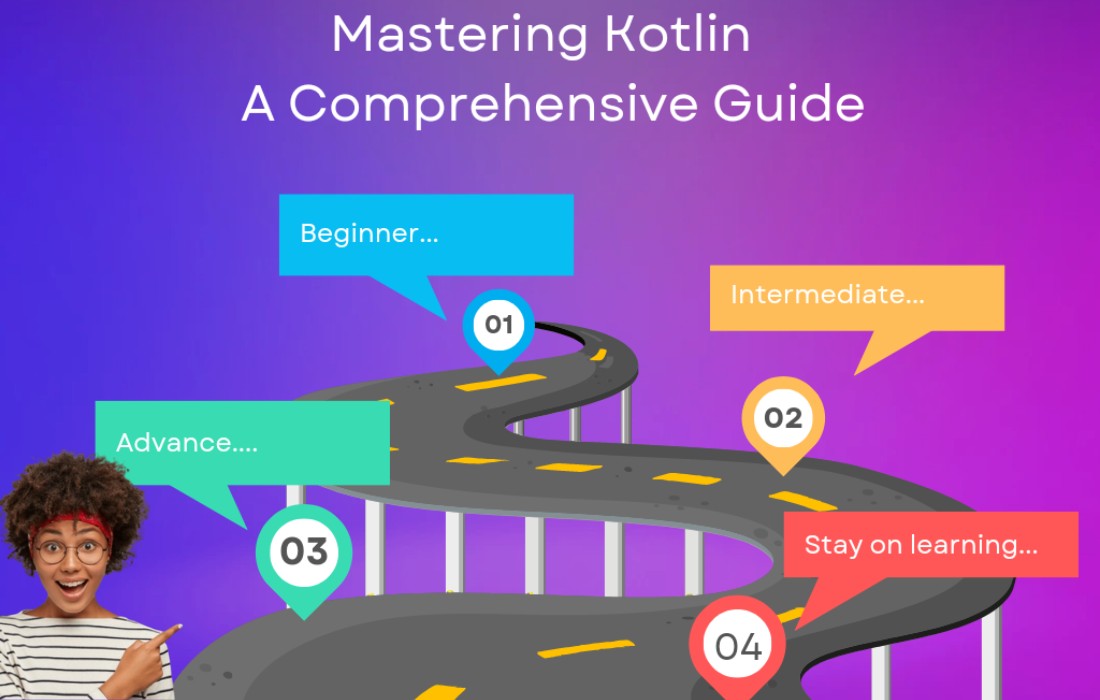Understanding Variables in Kotlin: Types, Mutability, and More
Kotlin is known for its concise and expressive syntax, and variables in Kotlin are no exception. In this post, we’ll explore how variables are declared in Kotlin, the difference between mutable (var) and immutable (val) variables, string interpolation, type inference, and more.
Declaring Variables in Kotlin
In Kotlin, variables are declared using the keywords var or val, followed by the variable name, and (in most cases) an initializer. Unlike some programming languages, you often don’t need to specify a type explicitly as Kotlin will infer it based on the initializer.
Typeless Declarations
If you’re initializing a variable with a value at the time of declaration, Kotlin can automatically infer the type of the variable. For example:
Here, Kotlin infers that count is of type Int because the initializer is the integer literal 5.
Typed Declarations
In cases where you want to specify a type, you can declare the variable with a type annotation:
Even though 5 is an Int, Kotlin automatically converts it to Long when assigned to the count variable.
val vs var: Mutable vs Immutable Variables
While both val and var can be used to declare variables, there’s a key difference between them.
val(Read-Only Variables): Avalvariable can only be assigned once and cannot be modified after initialization. Think of it as a constant.
Trying to modify avalvariable would result in a compile error:
var(Mutable Variables): Avarvariable can be reassigned any number of times during its lifetime.
Why Prefer val Over var?
You may initially think that var is more flexible because it allows for reassignment, but Kotlin developers generally prefer val by default. Immutable variables make your code easier to reason about and reduce the potential for bugs, especially when working in multi-threaded environments.
String Interpolation in Kotlin
Kotlin makes it easy to embed variables or expressions inside strings through string interpolation. Instead of concatenating strings manually or using a StringBuilder, you can directly embed the variables or expressions using
For example:
For expressions:
Working with Operators
Just like literals, variables can also be operated upon using arithmetic operators, and Kotlin provides a few more useful operators.
Increments and Decrements
Kotlin supports both post-increment and pre-increment, as well as post-decrement and pre-decrement operations.
This would output:
Similarly, you can use -- to decrement a value.
Augmented Assignments
Kotlin also supports augmented assignment operators like +=, -=, *=, /=, and
This is equivalent to:
Unary Operators
Kotlin offers the ! operator to invert a boolean value and the – operator to negate a number.
Handling Nullability
One of Kotlin’s most powerful features is its handling of nullability. By default, Kotlin does not allow variables to hold null unless explicitly declared as nullable. You can declare a variable as nullable by appending a ? to its type.
For example, a Boolean? type can hold true, false, or null, while a Boolean type cannot hold null:
No Automatic Number Conversions
In Kotlin, you can’t automatically convert between numeric types (such as Int and Long). For example:
To convert between types, you must use explicit conversion functions, like toLong():
Conclusion
Kotlin’s approach to variables and types is both powerful and flexible, with a focus on safety and simplicity. By using val for immutability and taking advantage of type inference, string interpolation, and powerful operators, you can write concise and readable code. Additionally, understanding nullability and avoiding automatic number conversions ensures your Kotlin code remains robust and less error-prone.
Stay tuned for further deep dives into Kotlin’s features in upcoming posts!












